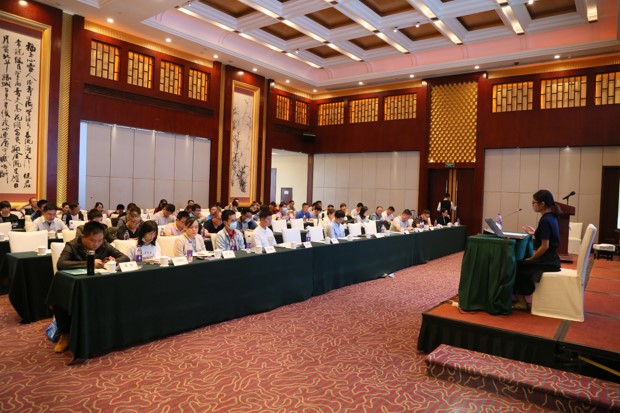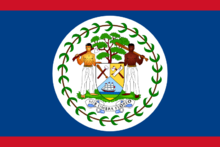2020年10月29日,广西寄递物流行业反野生动物及其制品走私业务培训班在广西南宁召开,该活动由广西壮族自治区打击走私综合治理领导小组办公室联合国家林业和草原局广州专员办(濒管办)、广西壮族自治区交通运输厅、广西壮族自治区邮政管理局、国际爱护动物基金会(IFAW)和野生生物保护学会(美国)北京代表处(WCS)共同举办。广西打私、林业和草原、商务、交通运输、邮政部门,以及29家物流寄递企业的管理人员参加了培训。
我国的《野生动物保护法》、《邮政法》、《道路运输条例》、《禁止寄递物品管理规定》等一系列法律法规严格禁止非法寄递和运输象牙、虎骨、犀牛角等濒危野生动物及制品。但近年来,一些不法分子利用网络电子商务、社交媒体、移动支付等便捷化的网络工具达成交易,藉由物流寄递渠道交付濒危野生动物及其制品,完成非法交易的闭环。在边境地区、航空枢纽,不法分子使用跨境物流快递走私野生动物活体或濒危物种制品等违禁品的违法案件也屡见报道。
2020年新冠疫情暴发后,全国人大出台了《关于全面禁止非法野生动物交易、革除滥食野生动物陋习、切实保障人民群众生命健康安全的决定》,全面加强对野生动物及其制品贸易的管控。打私、林业和草原、公安、交通运输、邮政管理、海关等部门均出台措施,全面落实禁止寄递和限制寄递有关制度规范,严禁运输法律、行政法规等禁止运输的野生动物,严厉打击野生动物非法寄递、运输。
广西自治区打私办专职副主任侯国广介绍,广西坚决贯彻落实中央决策和自治区部署,充分发挥大协同多锁链反走私综合治理体系作用,积极履行《濒危野生动植物种国际贸易公约》,始终坚持对濒危物种走私活动零容忍,着力精准打击,严格正面监管,强化宣传引导,推动跨境协作,多措并举深化综合治理,取得了显著成效。他认为,打击野生动物非法贸易事关生态安全、公共卫生安全。他表示,将进一步凝聚各方合力,采取强力举措,坚决打击边境地区利用快递、物流行业从事野生动植物及其制品走私贸易链条,全力推动打击濒危物种走私工作再上台阶。
广西邮政管理局市场监管处处长许承伟介绍说:“ 此次业务培训对提高邮政、快递从业人员濒危物种识别能力,强化拒绝寄递濒危物种及其制品意识具有重要作用,自治区邮政管理局将严格依法依规,切实要求邮政快递企业发挥安全生产主体责任,落实‘收寄验视+实名收寄+过机安检’ 三项制度,预防寄递珍贵、濒危物种违禁品违法行为。”
针对珍稀濒危野生动物种类繁多,一线收寄人员识别难度大的问题,广西顺丰速运副总经理潘国庆表示,广西自治区邮政管理部门专门为快递企业下发了常见非法贸易濒危物种识别海报并开展培训,另外顺丰速运除了从收件环节严格执行“实名收寄并验视”规范外,还建立了人检加过机安检的全方位查验体系,同时广西顺丰与公安、安全、海关、打私办等政府部门建立了紧密联系,针对一线快递员难以识别的野生动物制品,第一时间反馈公司并上报政府有关部门。“我们也愿意与政府部门和非政府组织合作继续加强对野生动物相关制品的查验力度,我们将把本次培训的收获通过公司内部培训的形式,传达给各环节一线工作人员,织密拦截寄递珍惜濒危物种制品的防线。”
全面提高野生动物非法贸易问题综合治理能力离不开贸易各环节相关的管理部门、企业发挥主体作用。因此,本次培训班向参加培训的一线管理和从业人员介绍了利用运输寄递渠道非法贸易野生动物及其制品与网络交易之间的密切关系,向其介绍了当前网络非法贸易的常见形态和预防对策建议,希望能帮助一线管理和从业人员加强跨部门交流协同,完善监管机制,提高一线工作人员落实运输收寄规范的能力。
The workshop for logistics and express industries on anti-smuggling wildlife and wildlife products was held in Nanning City, Guangxi Autonomous Region on October 29, 2020, jointly hosted by the leading group of Anti-Smuggling Coordination Office of Guangxi Autonomous Region, coordinated with Guangzhou City Office of National Forestry Grassland Administration (National Endangered Species Import & Export Management Office); Department of Transportation of Guangxi Autonomous Region; Postal Administration of Guangxi Autonomous Region; International Fund for Animal Welfare and WCS (US) Beijing Representative Office.The personnel from Anti-Smuggling Coordination Office of Guangxi Autonomous Region, Department of Forestry of Guangxi Autonomous Region, Department of Commerce of Guangxi Autonomous Region, Department of Transportation of Guangxi Autonomous Region, Postal Administration of Guangxi Autonomous Region as well as 29 logistics and express enterprises attended the workshop.
According to a series of laws and regulations in our country including Wildlife Protection Law, Postal Law, Regulations on Road Transportation and Regulations on management of articles that are prohibited from mails and deliveries, it is illegal to deliver or transport wildlife and wildlife products such as ivory, tiger bones and rhino horns. However, criminals in recent years managed to make deals by taking advantage of tools including e-commerce, social media, and mobile payment and to deliver endangered wild animals and their products through logistics and express channels. It is often reported that criminals used cross-border logistics and express channels to smuggle contraband such as live animals or products of endangered species in border areas and aviation hubs.
After the outbreak of Covid-19 in 2020, the National People's Congress issued the “Decision on Comprehensively Prohibiting the Illegal Trade of Wild Animals, Eliminating the Bad Habits of Wild Animal Consumption, and Protecting the Health and Safety of the People”, tightening the control of wildlife trade. Subsequently, the administrations of Anti-smuggling, Forestry and Grassland, Public Security, Transportation, Postal affairs, Customs and other departments have all introduced measures to strictly implement the regulations on prohibition and restriction in logistics and express industries in order to prevent delivering wildlife that are protected by laws and administrative regulations and severely crack down on Illegal wild animal delivery and transportation.
Hou Guoguang, deputy director of the Anti-smuggling Office of Guangxi Autonomous Region, introduced at the workshop that Guangxi Autonomous Region has resolutely followed the relevant decision(s) of central government and the deployment of Guangxi Autonomous Region, given full play to the multi-chain anti-smuggling coordination system, strictly implemented CITES (the Convention on International Trade in Endangered Species of Wild Fauna and Flora) and borne zero- tolerance on endangered species smuggling activities. According to Hou Guangxi has achieved significant results on combating wildlife crimes, carrying out surveillance, raising public awareness, promoting transnational coordination and strengthening comprehensive actions. In the future, Guangxi Autonomous Region will go even further on cooperating with different institutions and taking more powerful measures to combat wildlife smuggling via logistics and express in border areas, said Hou.
Xu Chengwei, director of the Department of Market Regulation of Postal Administration of Guangxi Autonomous Region, said: “This workshop plays an important role in improving the skills of identifying endangered species among post & express personnel and raising the awareness of refusing to deliver endangered species and their products. The Postal Administration of Guangxi Autonomous Region will strictly follow the laws and regulations, ensure that postal and logistics enterprises must shoulder their responsibilities, put into effect the regulations that 1. inspection must be carried out when deliveries are sent and received; 2. senders and recipients should be real names; 3. security inspection must be carried out strictly using detecting machines, in order to prevent illegal delivery of precious and endangered species.”
Given that rare and endangered wild animals are so diverse for front-line workers in logistics and express industries to identify accurately, Pan Guoqing, deputy general manager of SF Express of Guangxi Autonomous Region, said that Postal Administration of Guangxi Autonomous Region has made and distributed posters and held workshop for express enterprises to educate their personnel to identify endangered species. Besides, SF Express has followed the regulations that 1. inspection must be carried out when deliveries are sent and received; 2. senders and recipients should be real names; 3. security inspection must be carried out strictly using detecting machines. SF Express has also established close ties with the departments of public security, customs, and Anti-smuggling Office and other governmental departments, and thus is able to report to them timely wild animal products that are difficult for their personnel to identify. “We are willing to cooperate with governmental departments and non-governmental organizations to continue to strengthen the inspection of wildlife-related products,” Pan said, “And we will convey we have learned at this workshop to our front-line workers.”
In order to comprehensively improving the skills of combating wildlife trafficking, the relevant departments and enterprises in this trade chain should fulfill their responsibilities. Thus, the workshop explained to front-line workers in logistics and express enterprises the close link between Illegal online trade of wild animals and their products and logistics and express enterprises, introduced to them the current schemes of illegal online trade and taught them how to deal with the crimes, aiming to help the workers strengthen communication and coordination among different institutions, perfect the supervision mechanism, and improve the skills of front-line workers.




 Headquarters
Headquarters United States
United States Canada
Canada Afghanistan
Afghanistan Bangladesh
Bangladesh Cambodia
Cambodia China
China Fiji
Fiji India
India Indonesia
Indonesia Lao PDR
Lao PDR Malaysia
Malaysia Mongolia
Mongolia Myanmar
Myanmar Pakistan
Pakistan Papua New Guinea
Papua New Guinea Russia
Russia Thailand
Thailand Cameroon
Cameroon Congo (DRC)
Congo (DRC) Gabon
Gabon Kenya
Kenya Madagascar
Madagascar Nigeria
Nigeria Congo
Congo Rwanda
Rwanda South Sudan
South Sudan Tanzania
Tanzania Uganda
Uganda Zambia
Zambia Argentina
Argentina Belize
Belize Bolivia
Bolivia Brazil
Brazil Chile
Chile Colombia
Colombia Ecuador
Ecuador Guatemala
Guatemala Nicaragua
Nicaragua Paraguay
Paraguay Peru
Peru

 新浪微博
新浪微博  腾讯微博
腾讯微博  优酷
优酷  豆瓣网
豆瓣网